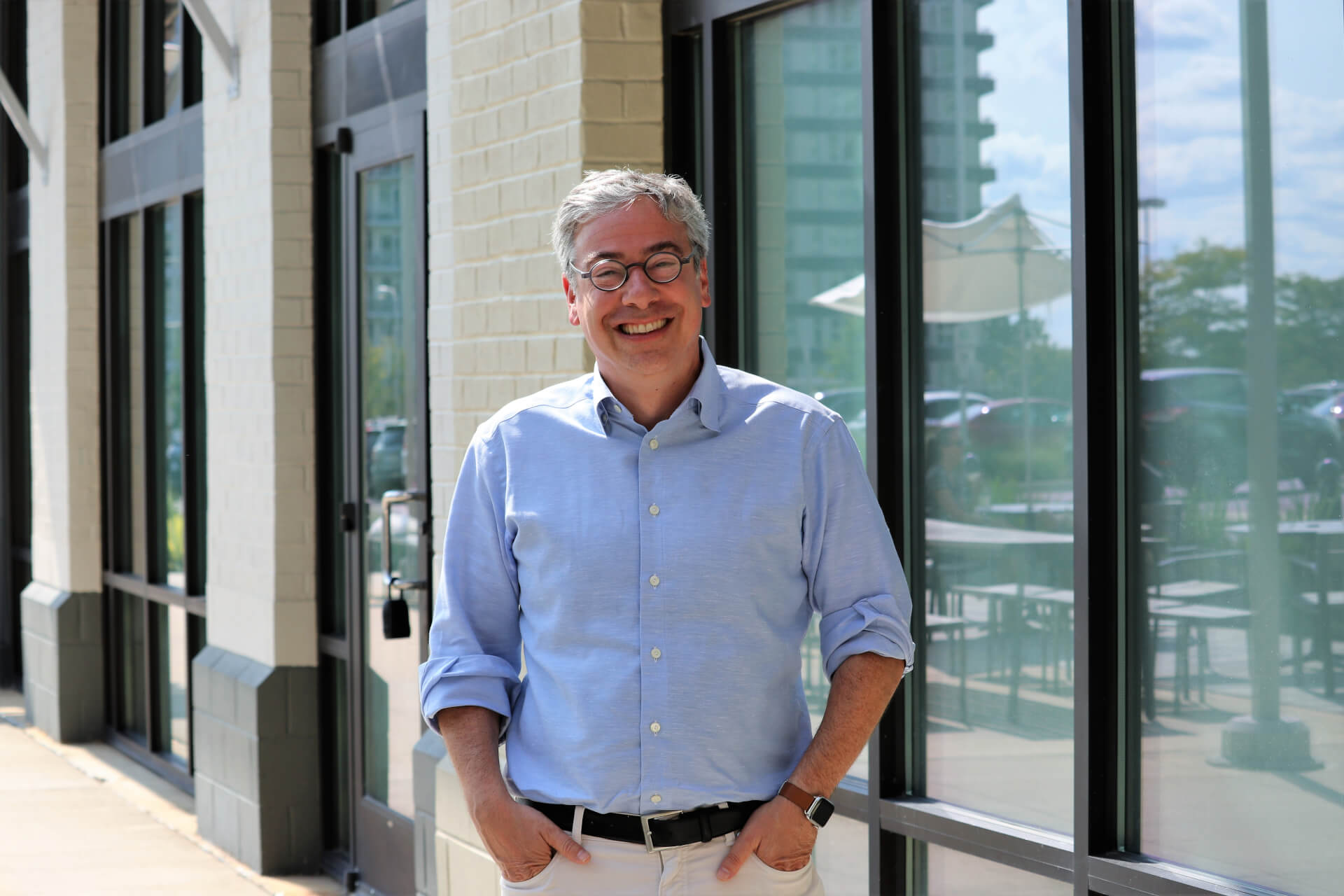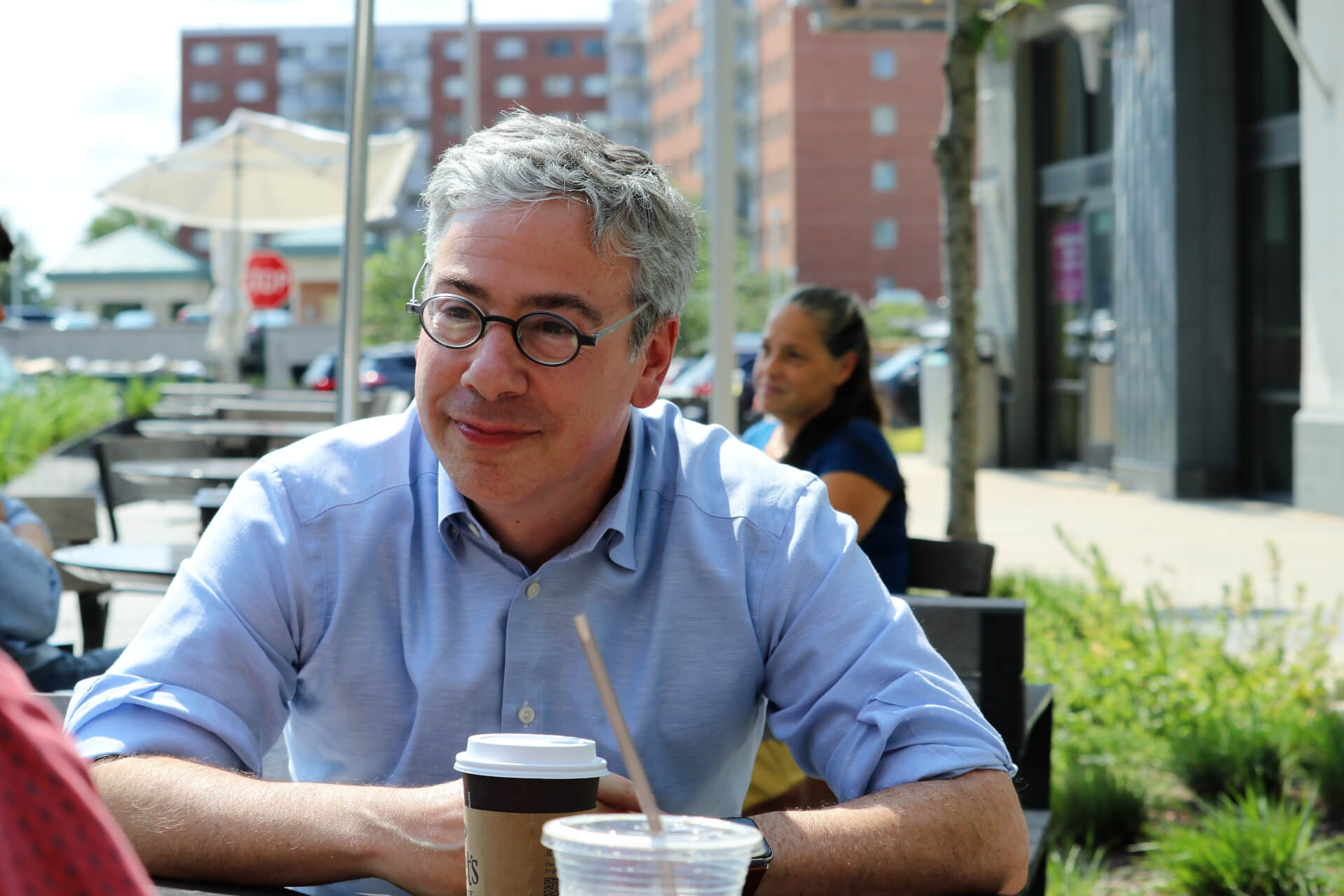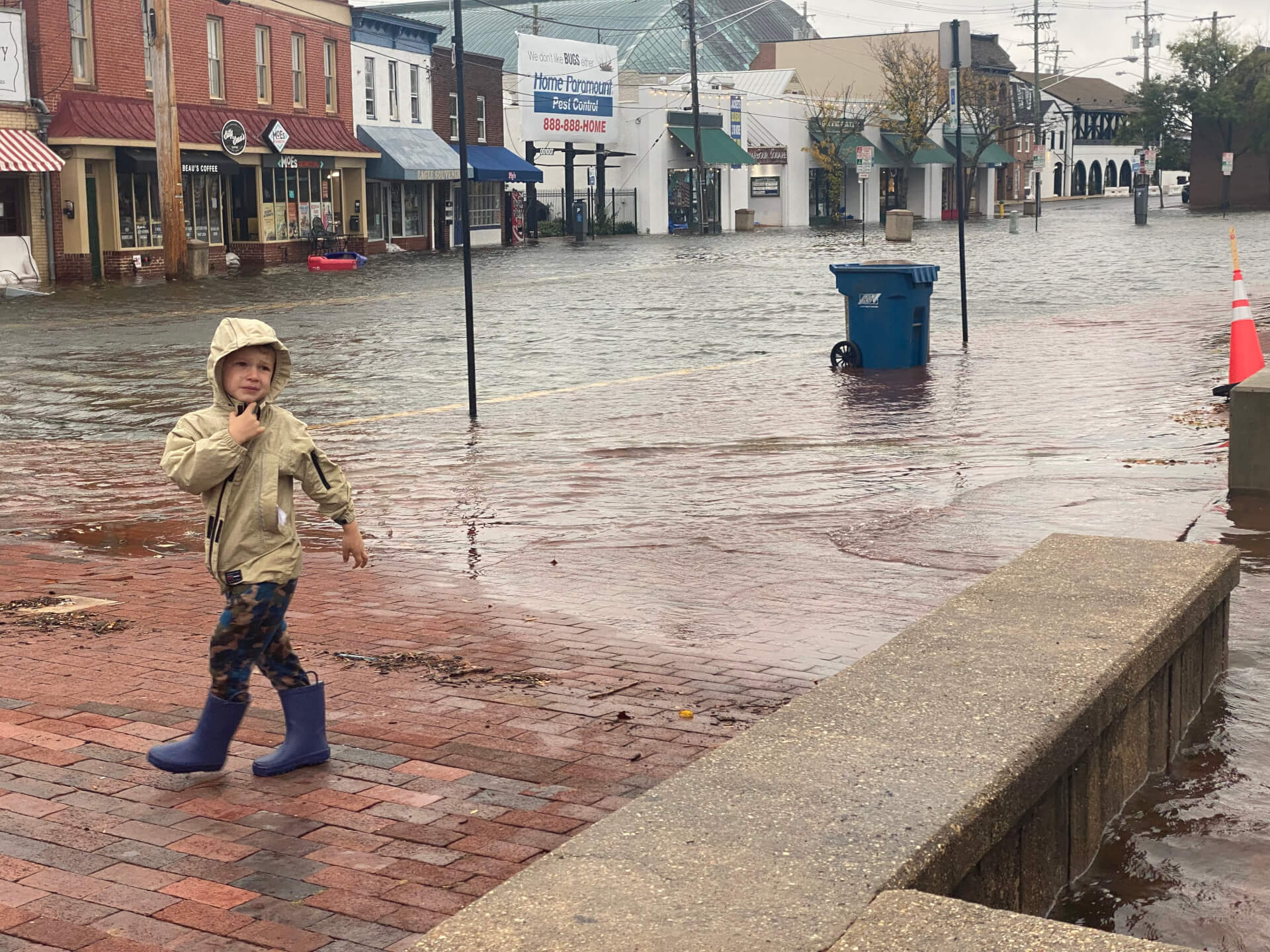Candidate’s Economic Plan Aims to Help Marylanders ‘Unlock Their Superpowers’

In the corporate world, the term “turnaround artist” has mixed connotations.
On the one hand, it’s a person who knows how to rescue a financially ailing company. On the other hand, the measures taken to save a business often come at the expense of its workers.
In his work in the private sector, entrepreneur Michael Rosenbaum, who is now a Democratic candidate for governor, has imagined himself as a turnaround artist of sorts — of people’s careers. He founded a tech company and a health care company that specialize in hiring people who have been left behind by society and lifting them from poverty into the middle class.
Now, he wants state government to do the same.
“The organizing principle,” Rosenbaum said in an interview, “is that the entire leadership of the state and all the agencies need to be rowing in the same direction to ensure that every Marylander can unlock their superpowers. Everyone in Maryland should have a pathway to economic success.”
Rosenbaum late last week put out the first phase of his economic revitalization proposal, which he’s calling “Transform Maryland.” It’s not a typical jobs plan: As much as anything, it seeks government investments in programs designed to lift barriers to entering the workplace, like universal access to day care and reliable public transit systems.
The proposal, he said, addresses “all systems that in our state tie together. We can’t achieve success without each piece of the system working together.”
By Rosenbaum’s account, the plan will help 250,000 Marylanders, including 100,000 African American families, enter into good-paying careers — opportunities many don’t currently have. It would focus on job creation in the health care, tech, skilled trades, and specialized manufacturing sectors, and would raise wages by more than $38,000 a year, on average, regardless of whether a person went to college or has any prior experience.
That tracks with Rosenbaum’s boast that his company’s workers generally have seen their annual income increase from $25,000 to $98,000 over the course of just a few years.
“We have good data on how long it takes for people to move up in income, with the proper investments, wraparound services and time,” he said.
To get people jobs in key sectors, they’ll need to know that there are day care services for their kids and reliable transportation to get them to work. On the child care front, Rosenbaum’s plan would:
● Provide full-day universal pre-K for 3- and 4-year-olds;
● Increase child care capacity statewide by offering tax credits to participating employers who provide on-site child care and by ensuring providers are paid promptly;
● Provide workers with subsidies to make child care more affordable;
● Leverage potential Build Back Better funding from the federal government to make child care even more affordable.
On the transportation front, Rosenbaum said his plan would:
● Invest in a comprehensive rail system for Baltimore, including a reimagined Red Line project;
● Invest heavily in mass transit to connect all of Maryland, including expanding MARC rail service and commuter bus systems;
● Ensure that WMATA, the multi-jurisdiction transit agency that runs the Washington, D.C. area Metro system, is fully funded;
● Work with employers to cover workers’ transit gaps, particularly last-mile transportation;
● Use the transportation investments included in the pending federal bipartisan infrastructure bill to help improve the state’s roads, bridges, mass transit systems, broadband infrastructure, water and power systems, and electric vehicle network.
Rosenbaum’s plan also envisions providing “bridge” services to workers who are searching for or training for new jobs. These include:
● Providing a $2,000 forgivable loan to cover costs of child care, transportation, proper attire, and other expenses participants in the program would potentially incur by changing careers;
● Providing at least a $15 per hour wage and health insurance to participants in skills development and apprenticeship programs;
● Partnering with community colleges, universities, K-12 schools to bolster the training and capacity pipeline for apprenticeships;
● Bolster state-run programs that work with private employers to provide job training for working people who don’t earn enough to provide financial stability for their households;
● Strengthening coordination between state government and unions to better match upcoming projects with future hiring numbers and skills needs.
Rosenbaum said his proposals can largely be paid for through the state’s current budget surplus, and that the investments are well worth it: Creating a more robust employment system and better-paying jobs will result in $2 billion-$3 billion in savings to the state government within six years in social safety net services that will no longer be needed, he estimated.
“There’s money available to make these structural investments,” he said.
Rosenbaum, a political newcomer, is one of nine candidates running for the Democratic gubernatorial nomination in the June 28, 2022 primary. Gov. Lawrence J. Hogan Jr. (R) is term limited; three Republicans are also seeking the job.
Rosenbaum said his plan is “founded in equity” and will address “systemic bias” in the workforce — and in society.
“We’ll become a model and a beacon for the rest of the country,” he said.




 Creative Commons Attribution
Creative Commons Attribution